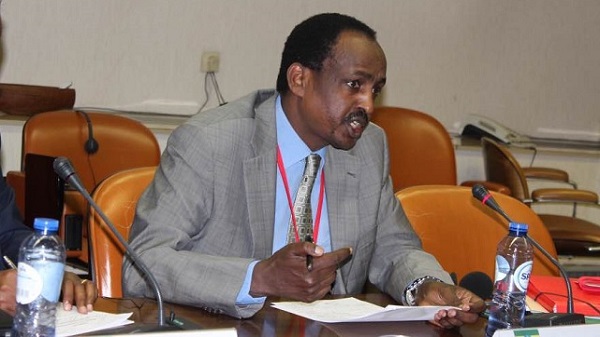
In an interview with South China Morning Post, Ethiopian ambassador to China Teshome Toga Chanaka defends China’s Belt and Road Initiative against criticism that it is a “debt trap” for developing countries
By Laura Zhou (SCMP)
BEIJING–Ethiopia is renegotiating billions of dollars in loans from Beijing for a railway that links the Ethiopian capital to neighboring Djibouti, to avoid being buried by “serious” debt woes tied to China’s controversial infrastructure push, Ethiopia’s top Beijing envoy said.
But despite the increasing debt pressure on Africa’s fastest growing economy, Ethiopian ambassador to China Teshome Toga Chanaka defended the ambitious trade and infrastructure plan known as the “Belt and Road Initiative” against criticism that it is a “debt trap” for developing countries.
“Those who may think this is an investment that is not worth investing on the Chinese side, I think that’s wrong because … if you are talking from an economic rationale, I think it makes a lot of sense,” Teshome* told the South China Morning Post in an interview last week at his residence in the Chinese capital.
“This is a very big country with huge potential for both passengers and cargo freight,” he said. “And eventually as our productivity increases and our export expands, definitely the cargo freight would be fully utilized,” Teshome said. “There’s no question about that.”
Beijing is seeking to build roads, railways, ports and pipelines in more than 60 countries globally, mostly through state financing, under the belt and road, an effort to recreate the ancient Silk Road network of trade routes that connected the East and West.
As a top destination for Chinese loans in Africa, Ethiopia has received over US$12.1 billion from China’s state policy banks since 2000, according to a report last year by Johns Hopkins University, a private US research institution.
The Addis Ababa–Djibouti Railway is an important part of the belt and road scheme in Africa since it connects landlocked Ethiopia to the sea by linking the capital, Addis Ababa, with the Port of Doraleh, a multipurpose port just west of the Djiboutian capital Djibouti City, with terminals for handling oil, bulk cargo and containers.
Teshome said the two governments were in talks to restructure the loans for the railway, which opened on January 1, 2018, and “especially the commercial loan, because it has put serious stress on our repaying capability”.
“We are negotiating with China as to how to manage the debt, to make it sustainable and try to reduce some distress that comes from debt … and there is substantial progress,” Teshome said. The two sides were moving closer to making the deal final, the envoy said.
Read the complete story at South China Morning Post
* Ethiopians use patronymic names rather than family names. That is, a person in Ethiopia is addressed by his/her given name as there is no such thing as ‘family name’ or ‘inherited name.’
